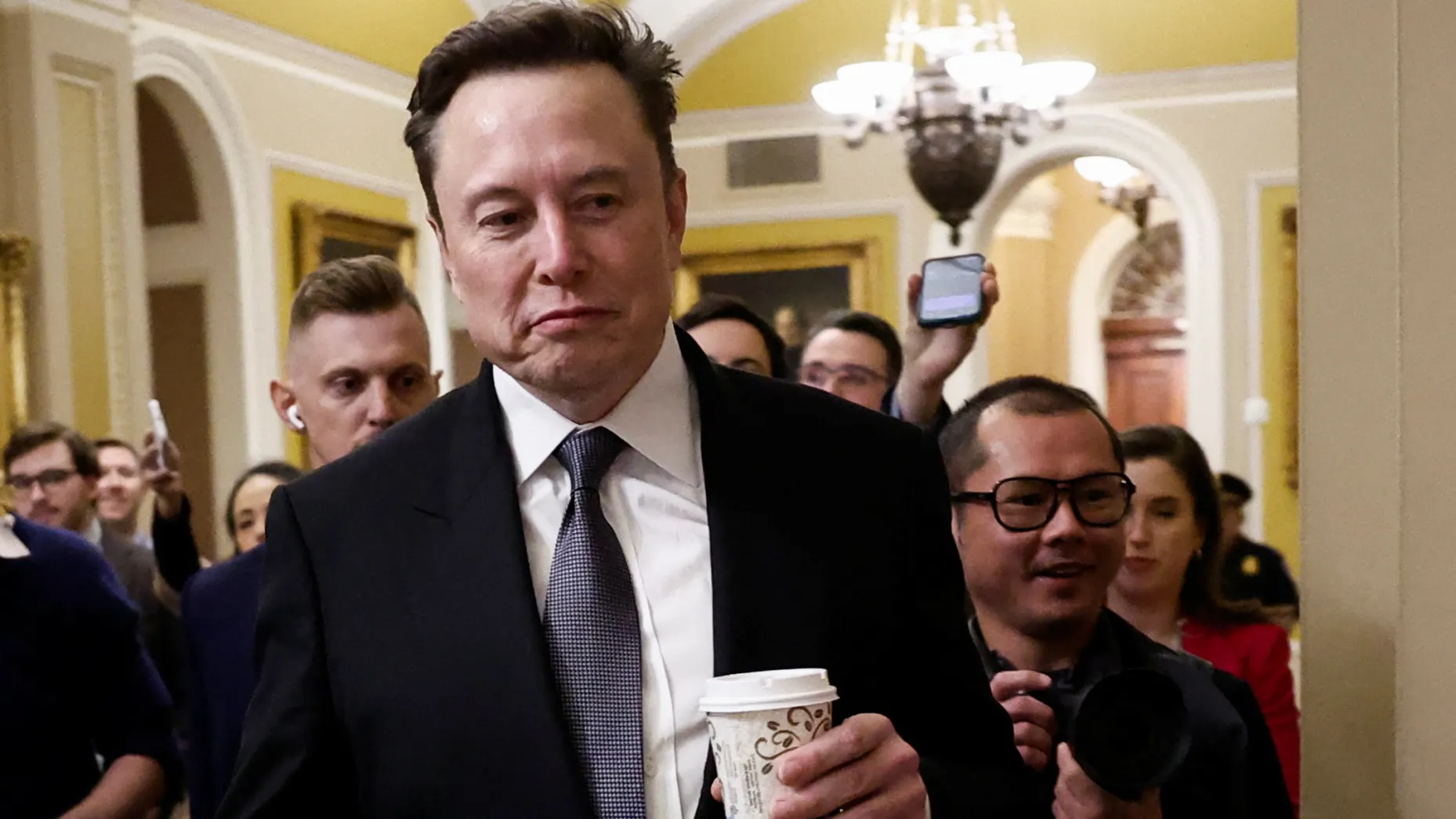House Democrats Accuse GOP caved to Musk China Interests in Funding Bill
GOP caved to Musk China,In a fiery debate surrounding the latest funding bill, House Democrats have accused the Republican Party of capitulating to billionaire Elon Musk’s business interests, specifically his ties to China. The controversy stems from provisions in the bill that reportedly shield Musk’s companies, including Tesla and SpaceX, from regulatory scrutiny related to their operations in China. Democrats argue that this move compromises national security and foreign policy in favor of corporate influence.
The heated discussion is based on claims that, in an effort to secure GOP support for the critical funding package, concessions were made that could benefit Musk’s financial dealings with China, undermining the U.S. government’s stance on national security risks posed by foreign influence in the tech sector. Critics suggest that by prioritizing Musk’s interests, the GOP is not only undermining American values but also enabling the expansion of China’s economic influence in the U.S. tech market.
Democrats’ Criticism of the GOP’s Compromise
GOP caved to Musk China, House Democrats wasted no time in highlighting what they see as a betrayal of national interests. “The Republican Party has allowed a private billionaire to dictate policy decisions that affect our national security,” said Representative Nancy Pelosi. “By shielding Musk from scrutiny, the GOP is not only failing to address concerns about China’s growing economic power but is also turning a blind eye to potential risks associated with Chinese influence over American tech companies.”
At the heart of the dispute is Elon Musk’s Tesla and SpaceX, both of which have significant operations in China. Critics argue that these operations, which involve extensive dealings with the Chinese government and state-owned enterprises, pose potential risks in areas such as data security and technology transfers. In particular, the GOP’s alleged concessions could prevent the U.S. government from fully investigating Tesla’s partnerships and SpaceX’s activities in China, despite concerns over intellectual property theft and foreign espionage.
Elon Musk’s Growing Influence in U.S.-China Relations
Elon Musk has long been a controversial figure when it comes to his dealings with China. As the CEO of Tesla, Musk has faced ongoing criticism for his company’s reliance on the Chinese market, where Tesla has a significant manufacturing presence. SpaceX, Musk’s aerospace company, has similarly found itself caught in the crosshairs of geopolitical tensions, with its technology seen as a potential asset for Chinese space ambitions.
Despite these concerns, Musk has remained largely unscathed, benefiting from a combination of political influence, strategic business moves, and his personal wealth. The latest funding bill, which has become a battleground for partisan politics, highlights the complex intersection of business interests and national security that has come to define much of U.S.-China relations in recent years.
National Security vs. Corporate Interests
For many House Democrats, the crux of the issue is the delicate balance between economic growth and national security. In their view, the U.S. government must prioritize the protection of sensitive technologies and critical infrastructure from foreign adversaries, particularly China. This includes holding tech companies like Tesla and SpaceX accountable for their foreign dealings, even if it means challenging powerful corporate figures like Musk.
“This is about ensuring that the U.S. is not vulnerable to foreign manipulation,” said Representative Adam Schiff. “If the GOP is willing to overlook these risks just to secure the backing of one of the wealthiest men in the world, it’s a dangerous precedent that could have long-term consequences for our security.”
GOP’s Position on the Funding Bill
The GOP, however, defends the funding bill as a necessary step to keep the government running and protect U.S. interests in other areas. Republican leaders argue that the bill includes critical provisions for national defense, economic growth, and infrastructure, and that accusations of favoritism towards Musk are unfounded.
In their defense, GOP members have stated that the provisions related to Musk’s companies were not intended to undermine national security but rather to ensure that American businesses remain competitive on the global stage. The GOP has also stressed that Musk’s ventures, particularly in space technology, are crucial for U.S. leadership in space exploration and innovation.
The Future of U.S.-China Relations and Tech Oversight
As the debate over the funding bill intensifies, the larger issue of U.S.-China relations looms large. Both countries are vying for global dominance in key technological sectors, from electric vehicles to space exploration. The influence of billionaires like Musk, who operate on both sides of the Pacific, raises important questions about how U.S. policy should evolve in response to China’s growing technological capabilities.
As the funding bill moves forward, the question remains: will the U.S. government prioritize the interests of its most influential tech moguls, or will it take a stronger stance on national security and foreign policy in its dealings with China?
Conclusion
The controversy surrounding the GOP’s funding bill highlights the growing tensions between corporate interests and national security concerns. As House Democrats continue to challenge the provisions that they argue favor Musk’s China dealings, the debate is far from over. The outcome of this dispute could have significant implications for U.S. foreign policy, tech industry regulations, and the broader geopolitical landscape.
This issue is just one chapter in an ongoing saga that examines the intersection of business, politics, and global power in an increasingly interconnected world. The coming weeks will undoubtedly bring more scrutiny to the actions of both political parties and the role of influential figures like Elon Musk in shaping the future of U.S. policy.
